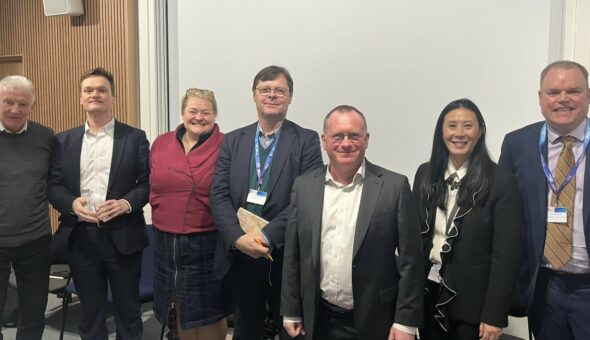How do the stories we tell ourselves about an area influence the skills we develop? Laura Smyth, a second-year PhD student in our Centre for Governance, Regulation and Industrial Strategy (CGR&IS) shares her research, as well as advice for future students.
What drove you to choose Bath for your PhD?
I had actually previously been working at Bath as a research assistant in the Institute for Policy Research, which I was doing remotely, when Dr Charles Larkin pointed out that there was a position that was a mix of PhD student and research assistant available in the School of Management. By that point I knew I liked Bath in terms of the people I'd met, and the work culture seemed really nice.
What is your research topic and how did you decide on it?
I'm looking at skills policy – how firms are getting the skills they need, and also whether policies and skills schemes are going to help local businesses upscale and reskill their workers. It all fits with what I was already interested in.
Part of my work is looking at digital skill narratives, so the stories people tell about a place. For example, Birmingham has a reputation for automation, so people might think those are relevant skills and that they should acquire them. Some people might make decisions based on research and demand, but so much of what we do is on gut instinct.
These stories inform a lot of things, and do they then become self-fulfilling? If we look at it, are they actually shaping the choices people are making? If an area's got a reputation for being a bit down and out, are people going to invest in learning digital skills if they don't think they're going to be in demand?
What initially sparked your interest in the topic?
It was a bit of a jump from what I was doing before. As a research assistant, the initial project I worked on was on universal basic income, and then another on combined authorities and the changes happening there – including how in some areas adult education is being devolved.
What are your findings so far?
I'm currently in the literature review stage, which is really interesting. A law is a law and a policy is a policy, but informal elements are a bit harder to measure. We know they matter – we've all agreed on this – but how the heck do we measure them? How do you measure trust or a positive feeling towards a particular area?
That's some of the stuff I want to look into, which is why my interviews and focus groups are going to be important.
I’ve also been looking at the changes still being done by central government. Things are being changed, but is that just a rebrand every time? A lot of the time knowledge gets lost along the way, because of how much churn keeps coming. It’s hard to tell if something is really the start of something or is just going to be abandoned in five years’ time.
How could your work be applied in a real-world setting?
Hopefully, it might show best practice for who policies need to engage with and whether we can assume that different methods or techniques are going to translate to different areas. It might be that, for particular areas, something different needs to be done or extra support needs to be implemented to build relationships between providers and employers if it’s not happening naturally.
It could also give insights into what actions could be taken by local leaders to try to change an area’s narrative and create a new dialogue.
What advice would you offer to others studying or considering a PhD?
I think you've got to make sure that the subject is something you're interested in, because it's a lot of work. You don't always have to like it, but if there's a base level of interest, you can always work on that – because there's a bit of discipline involved, as well. If you're going to be spending multiple years on it, don't pick something that makes you miserable.
And on the practical side: make sure you’re really organised with your filing!
Responses




Very interesting research, looking forward to the end result (and I guess you too!)